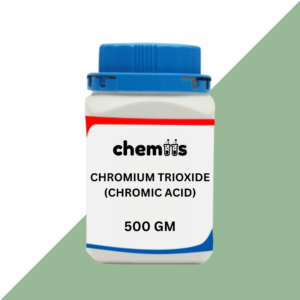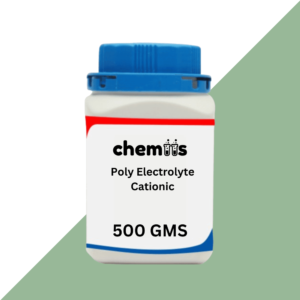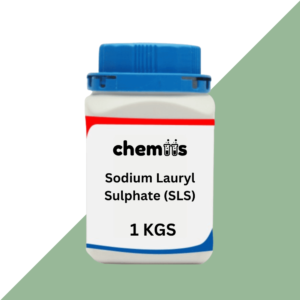Cobalt Acetate is an essential cobalt-based chemical compound with wide-ranging industrial applications due to its catalytic and stabilizing properties. Known for its distinct pinkish-red color, Cobalt Acetate plays a critical role as a catalyst in chemical synthesis, particularly in oxidation reactions, and is widely used in the manufacture of PET (Polyethylene Terephthalate) resins. It also serves as a coloring agent in ceramics, glazes, and textiles, lending its vibrant hue to various materials. With applications in coatings, dyes, and the production of catalysts, high-purity Cobalt Acetate is an invaluable compound across multiple industries.
Applications of Cobalt Acetate
Cobalt Acetate’s unique properties make it a versatile compound with applications in the chemical, textile, ceramic, and polymer industries. Here’s an overview of its primary applications:
1. Catalyst in Chemical Synthesis
One of the most significant applications of Cobalt Acetate is as a catalyst in chemical synthesis processes, particularly in oxidation reactions. It facilitates the conversion of various organic compounds in the production of chemicals and plastics, making it essential for manufacturers producing intermediates and final products. This catalytic action is particularly important in the synthesis of alkyd resins, where Cobalt Acetate assists in polymerization reactions, enhancing efficiency and product consistency.
2. Stabilizer in PET Resin Production
Cobalt Acetate is crucial in the production of PET (Polyethylene Terephthalate), a plastic resin widely used in packaging and textile fibers. In the PET manufacturing process, Cobalt Acetate acts as a stabilizer, preventing degradation during production and ensuring that the final PET product maintains its durability and clarity. This application is essential for industries involved in packaging, where PET’s structural integrity and clarity are paramount for product appeal and protection.
3. Pigment in Ceramics and Glass
Due to its vibrant pink-red color, Cobalt Acetate is used as a pigment in ceramics and glass, where it imparts a unique color that is highly valued in artistic and decorative applications. When added to ceramic glazes, Cobalt Acetate produces beautiful shades ranging from pink to blue, depending on the specific mixture and firing conditions. Glass manufacturers also use Cobalt Acetate to achieve decorative tints in colored glassware, enhancing aesthetic appeal.
4. Dye Component in Textiles
In the textile industry, Cobalt Acetate serves as a component in dye formulations, adding color to fabrics and fibers. It is especially useful in high-quality textile dyes where color consistency and lightfastness are critical. Cobalt Acetate’s solubility in water allows it to be used in dye baths, ensuring even color application and long-lasting vibrancy in fabrics. This property makes it valuable for producing textile products that retain their color intensity after prolonged exposure and use.
5. Drying Agent in Paints and Coatings
Cobalt Acetate is used as a drying agent, or “drier,” in paint and coating formulations. It accelerates the drying time of paints, varnishes, and other coatings, making it highly effective in both industrial and artistic applications. By promoting rapid polymerization and drying, Cobalt Acetate enhances the efficiency of application processes, making it suitable for use in environments requiring quick-drying finishes. Its role in drying solutions for oil paints and varnishes makes it a popular additive in the coatings industry.
6. Petrochemical Applications
In the petrochemical industry, Cobalt Acetate is used in the synthesis of various hydrocarbons and other organic compounds. It serves as an intermediate in the production of fuel additives, polymers, and lubricants. Due to its stability and catalytic properties, it is ideal for high-temperature reactions in petrochemical processes. Additionally, Cobalt Acetate is valued for its role in hydroformylation, a reaction that converts olefins into aldehydes, which are important feedstocks for producing a range of petrochemical products.
7. Laboratory and Research Applications
Cobalt Acetate is frequently used in laboratories for research and analytical purposes. It is employed in experiments to study the behavior of cobalt compounds and is essential in academic and industrial R&D settings. In addition to catalysis studies, Cobalt Acetate is also used in material science to examine its effects on various polymers, coatings, and pigments, making it a valuable compound for research institutions.








Manju Devi (verified owner) –
Satisfied with the results.
Kusum Kumari (verified owner) –
Excellent packaging.
Lavanya Jain (verified owner) –
Items exactly as ordered.
Atul Chauhan (verified owner) –
Efficient and reliable.
Vinay Tiwari (verified owner) –
Received in good time.
Shruti Bhandari (verified owner) –
Reasonably priced.
Deepansh Bedi (verified owner) –
Reasonably priced.
Anjali Prasad (verified owner) –
Clean and clear instructions.
Nandini Kaul (verified owner) –
Neat and secure packaging.
Kavita Nair (verified owner) –
Excellent online store.